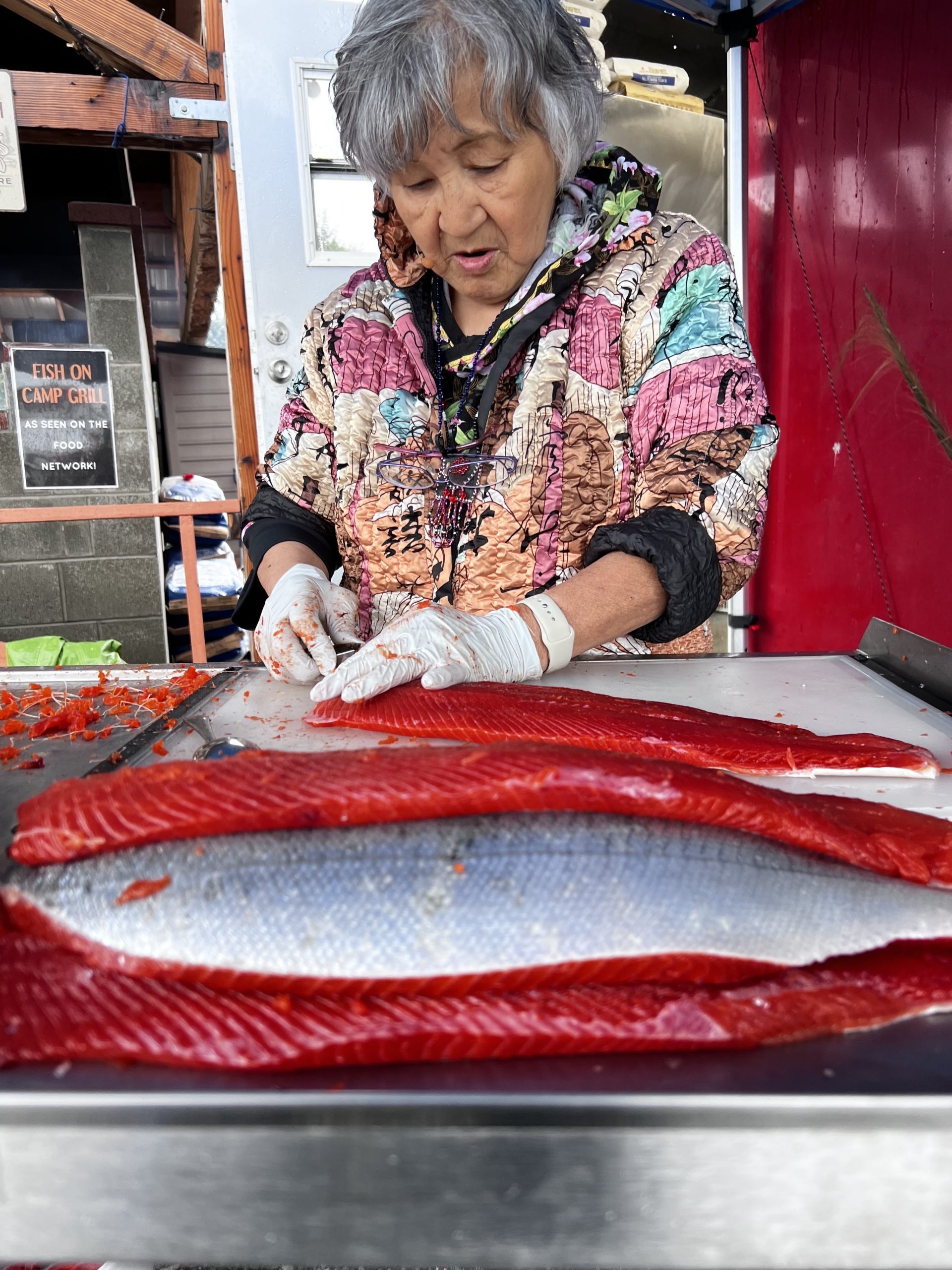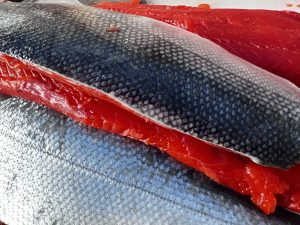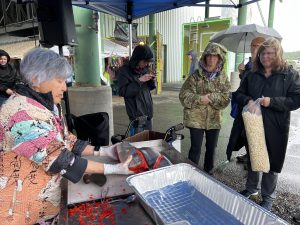Podcast: Play in new window | Download | Embed
A nonprofit is shedding more light on the history of Indian boarding schools in the U.S. and Canada.
The Mountain West News Bureau’s Will Walkey reports.
The National Native American Boarding School Healing Coalition’s new map documents 523 schools – more than 100 above the most recent list by the U.S. Interior Department.
They were run by federal governments or churches with the goal of assimilating Native Americans into white culture.
The students’ hair was cut and they were sometimes beaten for speaking their language.

Courtesy Samuel Torres / LinkedIn
Samuel Torres is with the coalition focused on boarding school healing that made the map.
“The impetus of boarding schools was always Indigenous erasure, was the removal of Native language, was the removal of the influence of the family, of the home, of the nation.”
More than 150 schools were in the Mountain West, with many in the Four Corners region.
Torres hopes to gather more testimony from survivors in the coming months.
“We’re going to need this moment of accountability in order to be able to chart a path ahead towards healing, towards justice.”
Torres says the map will be updated later this year to include more archival records.

Yéil Yádi Olson is Lingít Raven from the Kaa Shaayi Hit (Severed Head House) and is also of Nordic descent. He constructed this seclusion hut in collaboration with curator and healer Meda DeWitt. Olson wanted to use his skills as a carpenter to educate others about Indigenous cultures. (Photo: Rachel Cassandra / Alaska Public Media)
The knowledge work and art of Indigenous healers and medicine people in Alaska is being featured at the Anchorage Museum.
“Good Medicine” is a multidisciplinary exhibit.
Alaska Public Media’s Rachel Cassandra has more.
“Good Medicine” features paintings, illustrations, a women’s house, and a men’s house.
Those houses are traditionally used for healing, teaching, and meetings.
Meda DeWitt’s Lingít names are Khaat kłaat and Tśa Tsée Naakw.
She’s a healer and the curator.
DeWitt says the show is both about healing and is healing in itself.
She says it holds space for traditional healers to be seen and to speak.
That’s in contrast to colonization’s attempts at erasure of Alaska Native culture.
She says healers and spiritual leaders were targeted during colonization because of how they protected people.
“Many folks were sent to insane asylums, or penitentiaries. Or they were just taken out into the woods and, you know, just went missing, never came back or out into the ocean.”
For decades, Alaska Native people were forbidden from practicing traditional healing, so she says people are choosing ways to adapt practices.
“We have to first fully articulate who we were pre contact… to understand how to adapt it so that we are… 21st century Indigenous people on our own terms.”
Ultimately, DeWitt says that acknowledging the trauma of colonization is part of cultural healing.
“Let’s not… whitewash history, let’s… work as a community together to seek healing and repair… so that way, our future generations don’t have to carry on that burden any longer.”
The exhibit “Good Medicine” will be up through the spring.

Courtesy NDN Collective / Facebook
The Indigenous led organization NDN Collective, and the human rights group Amnesty International USA, are holding a rally at the White House Tuesday.
Indigenous people and their allies are asking President Joe Biden to free Leonard Peltier (Turtle Mountain Band of Chippewa).
The event is being held on Peltier’s 79th birthday.
For nearly five decades, Peltier has been imprisoned in the U.S. for the deaths of two FBI agents on the Pine Ridge Reservation in South Dakota.
Peltier has maintained his innocence.
A march and action are taking place in Washington, D.C., as well as a group of speakers, including tribal leaders, advocates, a U.S. lawmaker, and a former federal judge who is counsel to Peltier.
Get National Native News delivered to your inbox daily. Sign up for our newsletter today.



 The Barbie doll has been getting much attention with the release this summer of the Barbie movie.
The Barbie doll has been getting much attention with the release this summer of the Barbie movie.






 It’s known at the Alaska State Fair as “The Gathering Place”, created to showcase the talents of Alaska Native singers, dancers, and artists from across the state.
It’s known at the Alaska State Fair as “The Gathering Place”, created to showcase the talents of Alaska Native singers, dancers, and artists from across the state. Spectator: “It’s beautiful.”
Spectator: “It’s beautiful.” Her family fishcamp was on the Flambeau River, near Nome.
Her family fishcamp was on the Flambeau River, near Nome.
 “Well, today’s return is a significant step forward in the relationship between the Kaw Nation and the City of Lawrence, it alone is not enough it must be part of a statewide effort to respect the significance of sacred places and support tribal cultures.”
“Well, today’s return is a significant step forward in the relationship between the Kaw Nation and the City of Lawrence, it alone is not enough it must be part of a statewide effort to respect the significance of sacred places and support tribal cultures.” Tribes in California blasted the state’s university system for withholding nearly 700,000 Native American remains at a state legislative hearing Tuesday.
Tribes in California blasted the state’s university system for withholding nearly 700,000 Native American remains at a state legislative hearing Tuesday.